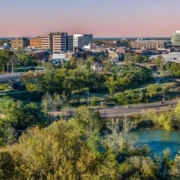The Secret Sauce to Airbnb Success: Mastering Costs and Expenses
- Blueprint For Successful Airbnb Entrepreneurship
- Building a Successful Passive Airbnb Management Business
Introduction
Ah, the Airbnb business! It’s the modern-day gold rush. It offers freedom, financial independence, and a chance to meet people from all walks of life. But much like the gold rush, it’s not without its pitfalls. It’s not just about having a spare room or a swanky downtown apartment. There’s a lot more that goes into running a successful Airbnb business, and a significant part of it is managing your costs and expenses effectively.
So what is The Secret Sauce to Airbnb Success: Mastering Costs and Expenses? The answer lies in understanding your costs, optimizing your pricing, managing your cash flow, and finding ways to reduce your expenses. And this is what we will explore in this detailed guide.

The Range of Costs and Expenses
Before we delve into the nitty-gritty of costs and expenses, it’s crucial to understand what they encompass in the Airbnb context. Costs and expenses for an Airbnb host can range from fixed costs like mortgage or rent payments, utility bills, and property insurance, to variable costs such as cleaning, repairs, and guest amenities. Mastering these costs and expenses forms the backbone of a successful Airbnb business.
Understanding Your Airbnb Costs
As an Airbnb host, understanding your costs is the first step towards effectively managing them. Below are the main types of costs that you’ll need to keep tabs on:
- Fixed Costs: These are expenses that remain constant irrespective of whether you have guests or not. They include your mortgage or rent, property taxes, homeowners’ insurance, and subscription costs for any software you use to manage your Airbnb listing.
- Variable Costs: These costs fluctuate depending on the number of guests you have and how often your property is booked. They include cleaning fees, replenishment of amenities, repairs, and maintenance.
- One-Time Costs: These are costs you incur only once or infrequently, such as the initial cost of furnishing your property or major upgrades and renovations.
Keeping track of these costs will give you a clear picture of your baseline expenses, allowing you to set competitive yet profitable prices for your listings.
Common Airbnb Maintenance Problems and How to Fix Them: An Expert Guide
Strategizing Your Pricing
Your pricing strategy can make or break your Airbnb business. Setting the right price is a balancing act between covering your costs and remaining competitive in the market. Here are some tips on strategizing your pricing:
Consider Your Costs: Your pricing should first and foremost cover your costs. This means setting a base price that will cover your fixed costs and incorporating a buffer for your variable costs.
Check the Competition: To remain competitive, regularly check the prices of similar listings in your area. This will help you understand the market rate and adjust your prices accordingly.
Leverage Dynamic Pricing: Dynamic pricing involves adjusting your prices based on demand and availability. During peak seasons or special events, you can increase your prices, while during low-demand periods, reducing your prices can help attract more bookings.
Maximizing Profits from Airbnb: Decoding the Pricing Algorithm & Implementing Effective Strategies

Managing Your Cash Flow
Cash flow is the lifeblood of any business, and Airbnb is no exception. Proper cash flow management ensures you have enough funds to cover your costs and sustain your business. Here are some tips for managing your cash flow:
Keep a Cash Reserve: Life is full of surprises, and unplanned expenses can pop up at any time. Having a cash reserve will help you navigate these unexpected costs without jeopardizing your business.
Collect Payment in Advance: Airbnb’s payment policy, where hosts are paid 24 hours after the guest’s scheduled check-in, helps maintain a consistent cash flow. However, consider setting a strict cancellation policy to prevent last-minute cancellations from affecting your income.
Stay on Top of Your Bookings: Keeping your property occupied as much as possible will ensure a steady inflow of cash. Regularly update your calendar and respond promptly to booking requests to attract more guests.
Explore Boosting Airbnb Occupancy Rate: Comprehensive Guide for Hosts.
Reducing Your Expenses
Reducing your expenses can significantly boost your profitability. Here are some tips to keep your costs in check:
Minimize Vacancies: Keeping your property booked as consistently as possible will spread the fixed costs over more bookings, reducing the cost per booking.
DIY When Possible: When it’s possible, do it yourself (DIY) so you can avoid paying for simple tasks like minor repairs, cleaning, and management.
Bulk Buy Amenities: Buying guest amenities in bulk can lead to significant cost savings in the long run.
Use Energy-Efficient Appliances: Energy-efficient appliances can significantly reduce your utility bills, which are part of your fixed costs.
Conclusion
Mastering costs and expenses is key to running a successful Airbnb business. By understanding your costs, strategizing your pricing, managing your cash flow, and finding ways to reduce expenses, you can maximize your profits and ensure the longevity of your business.
Running an Airbnb can be a rewarding venture, both financially and personally. But like any business, it demands diligence, financial acumen, and a deep understanding of the market. By mastering costs and expenses, you’re not just saving money; you’re building the foundation for your Airbnb’s success. So, apply these strategies and let your Airbnb business shine!
Check out The Best Airbnb Podcasts in the Vacation Rental Industry.












